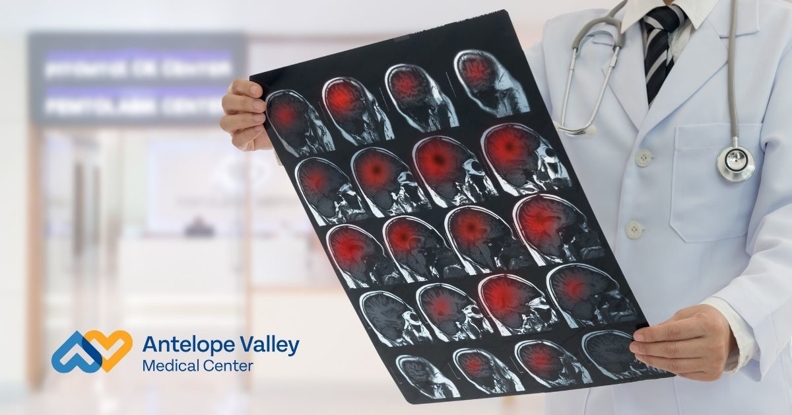What are the Signs of Overdose?
- Category: Overdose
- Posted On:
- Written By: Antelope Valley Medical Center

Recognizing the Signs of Overdose
An overdose happens when the amount of a drug or substance in the body exceeds a safe level, overwhelming the body's systems. Rapid recognition of overdose symptoms is essential to prevent severe injury or death. Different substances can cause varying signs, but some symptoms are common across many types of overdoses.
Common Symptoms of Overdose
When watching for an overdose, these symptoms often indicate a medical emergency and require immediate attention:
Extreme drowsiness or inability to wake up
Confusion or disorientation
Slow, irregular, or stopped breathing
Pale, clammy, or bluish skin (especially lips and fingertips)
Pinpoint pupils (particularly in opioid overdoses)
Vomiting or choking
Seizures or convulsions
Weak or irregular heartbeat
Loss of consciousness or unresponsiveness
Knowing these signs can empower bystanders to act quickly and save lives.
How to Respond to an Overdose Emergency
Immediate intervention can be the difference between life and death. If you suspect someone is overdosing, act fast and stay calm.
Steps to Take
To provide effective help during an overdose emergency, follow these crucial steps:
Call 911 immediately: Never hesitate to seek professional emergency help. Provide clear details about the situation and substances involved if known.
Check responsiveness and breathing: Try to wake the person by calling their name or gently shaking them. Look for signs of normal breathing.
Position safely: If the person is unconscious but breathing, place them in the recovery position (on their side with head tilted back) to prevent choking.
Administer naloxone if available: For suspected opioid overdoses, naloxone can temporarily reverse respiratory depression. It is safe and easy to use, and training is widely available.
Perform CPR if necessary: If the person stops breathing or has no pulse and you are trained, begin chest compressions until emergency personnel arrive.
Stay with the person: Do not leave them alone. Continue monitoring their condition and provide reassurance if they regain consciousness.
Overdose Prevention: Key Strategies
Prevention is a crucial component in reducing overdose risks. Educating yourself and loved ones on safe practices can save lives.
Important Prevention Measures
Implementing these prevention strategies can significantly reduce the risk of overdose:
Use medications exactly as prescribed, and never share prescriptions.
Avoid mixing substances, especially depressants like alcohol, benzodiazepines, and opioids.
Store medications securely and dispose of unused drugs properly.
Learn about and carry naloxone if you or someone you know is at risk.
Seek professional support for substance use disorders early.
Stay informed about the risks of street drugs, which may contain unknown or potent additives.
Understanding Resources and Support Systems
Help is available for individuals struggling with substance use and those affected by overdose.
Local and National Resources Include:
The following resources offer vital support and assistance in overdose situations and recovery:
Emergency medical services: First responders trained to manage overdoses.
Naloxone distribution programs: Many community centers, pharmacies, and healthcare providers offer naloxone kits and training.
Addiction treatment centers: Inpatient and outpatient programs that provide counseling, medication-assisted treatment, and support groups.
Crisis hotlines: Immediate emotional support and referral services.
How Antelope Valley Medical Center Can Help
At Antelope Valley Medical Center, we provide comprehensive services designed to support overdose prevention and recovery, including:
Education on recognizing and responding to overdoses
Access to naloxone and training on its use
Specialized addiction treatment programs tailored to individual needs
Ongoing support and follow-up care for patients and families
When to Seek Medical Attention
While minor substance reactions can sometimes be managed at home, overdoses require urgent medical care. Seek emergency help if you notice:
Difficulty breathing or no breathing
Loss of consciousness
Seizures or convulsions
Severe chest pain or irregular heartbeat
Uncontrollable vomiting or choking
Early intervention improves outcomes and can prevent lasting damage. Need emergency medical assistance? We are here to help.
If you or a loved one is at risk of overdose or needs immediate medical interventions due to substance use or an accidental overdose, don't hesitate to contact the Antelope Valley Medical Center at 661-949-5000 or come to our emergency room.


.jpg)
